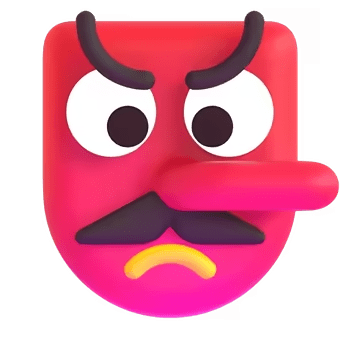goblin
goblin, 코주부 도깨비 가면
This emoji is modeled after the Tengu (天狗) mask from traditional Japanese culture. It features a red face and a long nose.
Like the Dokkaebi in Korea, the Tengu is a famous legendary character in Japan. Although it has a scary expression, it is also used to convey funny stories.
일본 전통 문화의 텐구(天狗) 가면을 본떠 만든 이모지입니다. 빨간 얼굴에 긴 코가 특징이에요.
한국의 도깨비처럼 일본에서는 텐구가 유명한 전설 속 캐릭터예요. 무서운 표정이지만 재미있는 이야기를 전달할 때도 사용합니다.


Tengu is a yokai (supernatural creature) that holds an important place in Japanese folklore, often punishing arrogant people or sometimes imparting wisdom. It's a character that frequently appears in modern Japanese anime and games.
This emoji is a good example of how traditional East Asian culture is being reinterpreted in the digital age. It has become an iconic symbol of Japanese culture in global pop culture and is a frequent motif, especially in cosplay and Japanese cultural festivals.